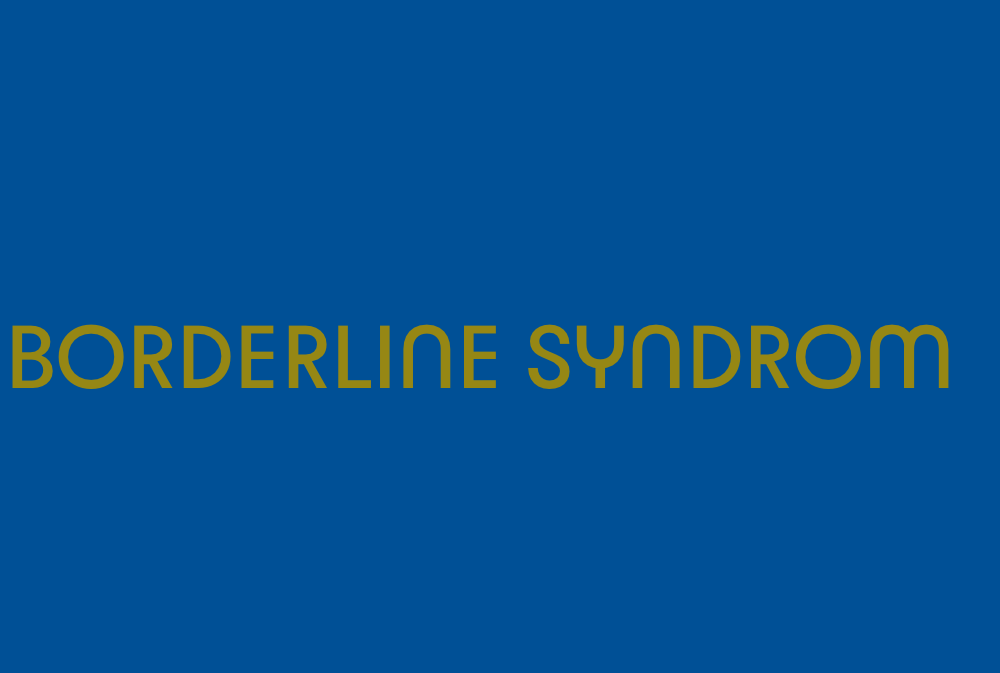Borderline Mother
How to Support Mothers with Borderline Personality Disorder: Therapy Options

Did you know approximately 1.6% of adults in the United States are affected by borderline personality disorder (BPD)? This mental health issue has a profound impact on individuals, especially when it comes to navigating the challenges of motherhood. Mothers who have borderline personality disorder often struggle with emotional regulation skills and directing their children, amidst managing their own mental health difficulties.
Key Takeaways:
- Borderline personality disorder affects approximately 1.6% of adults in the United States.
- Borderline mothers face unique challenges when it comes to parenting and emotional regulation.
- Support and therapy options are available to help borderline mothers develop essential skills and find mental health support.
- Psychotherapy, support groups, individual therapy, and family therapy are effective options for managing BPD symptoms.
- Mindfulness techniques can be beneficial for emotional regulation and self-care.
Understanding Borderline Personality Disorder
Before diving into the distinct types of mothers with BPD, it’s essential to grasp the core features of Borderline Personality Disorder (BPD). BPD is a mental health condition characterized by emotional instability, intense reactions to perceived rejection or abandonment, impulsivity, and turbulent relationships. Individuals with BPD often struggle with alternating between idealizing and devaluing others, including their children.
Emotional instability is a prominent symptom of BPD, leading to unpredictable mood swings and difficulties in regulating emotions. People with BPD may experience intense emotional reactions to situations that others might perceive as minor. This emotional dysregulation can create challenges in interpersonal relationships, including those with their children.
Another hallmark symptom of BPD is impulsivity. Individuals with BPD may engage in impulsive behaviors without considering the consequences, such as reckless spending, substance abuse, or unsafe sexual practices. These impulsive actions can further contribute to the instability and chaos in their relationships, affecting their parenting abilities.
Additionally, the relationships of individuals with BPD are often characterized by idealization and devaluation. They may quickly idealize others, seeing them as perfect and putting them on a pedestal. However, this idealization can rapidly shift to devaluation, where the person is suddenly seen as entirely negative and unworthy of their affection. This pattern of idealization and devaluation can impact their interactions with their children, causing confusion and instability in their relationships.
“People with BPD may experience intense emotional reactions to situations that others might perceive as minor. This emotional dysregulation can create challenges in interpersonal relationships, including those with their children.”
Understanding the core features of BPD is crucial in comprehending the experiences of mothers living with this condition and the potential effects on their children. By recognizing the symptoms of emotional instability, intense reactions, impulsivity, and turbulent relationships, we can begin to develop a deeper understanding of the unique challenges mothers with BPD face and the impact it has on their parenting.
In the next section, we will explore the different types of mothers with Borderline Personality Disorder and how their behaviors and interactions may vary.
Types of Mothers with Borderline Personality Disorder
Mothers with Borderline Personality Disorder (BPD) can exhibit a variety of behaviors and parenting styles that stem from their unique struggles with the disorder. Understanding these different types of mothers can provide valuable insights into the challenges faced by both the mother and her children. Let’s explore the distinctive characteristics of each type:
Waif Mother
The “Waif” mother with BPD often portrays herself as helpless and victim-like. She may struggle with feelings of worthlessness and pervasive fear of abandonment. In her relationship with her child, the Waif mother constantly seeks reassurance and emotional support, leading to an unhealthy role reversal where the child feels responsible for their mother’s well-being.
Hermit Mother
The “Hermit” mother with BPD is marked by extreme paranoia and fear of the outside world. She may isolate herself and her child, creating an insular and highly controlled environment. This type of mother instills fear in her child and fosters dependency through overprotectiveness, limiting their exposure to external influences.
Queen Mother
The “Queen” mother with BPD exhibits controlling and self-centered behaviors. She sees her child as an extension of herself, expecting them to meet her emotional needs and abide by her rules without question. In this dynamic, the child’s needs and feelings are often disregarded, leading to a lack of autonomy and unhealthy dependency.
Witch Mother
The “Witch” mother with BPD tends to display aggressive and dominating behavior. Her relationship with her child is marked by intense fear-driven control, and she may resort to emotional, verbal, or even physical abuse. This type of mother creates a hostile living environment where the child constantly fears inciting her anger.
By recognizing these various types of mothers with BPD, we can gain a deeper understanding of the diverse challenges faced by their children. It is important to note that these categories are not mutually exclusive, and a mother with BPD may exhibit traits from multiple types. The impact of a mother’s BPD can be far-reaching, affecting the development of healthy relationships, role reversal, fear of abandonment, and controlling behaviors.

| Mother Type | Parenting Style | Main Characteristics |
|---|---|---|
| Waif Mother | Helpless and victim-like | Constant need for reassurance, emotional support, and role reversal |
| Hermit Mother | Paranoid and isolating | Fear of the outside world, creating an insular and highly controlled environment |
| Queen Mother | Controlling and self-centered | Expects the child to meet her emotional needs and disregards their feelings |
| Witch Mother | Aggressive and dominating | Exhibits intense fear-driven control, resorting to emotional, verbal, or even physical abuse |
Navigating Relationships with BPD Mothers
Recognizing these patterns is the first step in understanding the dynamics of a relationship with a mother diagnosed with Borderline Personality Disorder (BPD). It’s essential to be aware that these categories are not exhaustive or mutually exclusive; a mother with BPD might exhibit traits of more than one type or behave differently under various circumstances or at different times.
Children of BPD mothers can benefit greatly from counseling or therapy. These resources provide a safe space to process their experiences and learn coping mechanisms. Professional support can offer strategies for setting healthy boundaries and building resilience.
When navigating relationships with BPD mothers, it is crucial to:
- Recognize Patterns: Understanding the recurring behaviors and tendencies of BPD mothers can help manage expectations and reduce frustration. By recognizing patterns, individuals can respond in ways that promote healthier interactions.
- Seek Counseling: Children of BPD mothers can find support through individual counseling or therapy. These services provide a space to process emotions, develop coping mechanisms, and learn strategies for setting boundaries.
- Set Healthy Boundaries: Establishing clear boundaries is essential for maintaining one’s emotional well-being. Learning to say “no” and prioritize self-care helps protect against emotional overwhelm and enables healthier relationships.
- Build Resilience: Building resilience is crucial for individuals navigating relationships with BPD mothers. This can include practicing self-care, engaging in stress-reducing activities, and seeking support from friends, family, or support groups.
By following these strategies and seeking professional guidance, individuals can navigate relationships with BPD mothers more effectively, fostering healthier dynamics and promoting personal growth.

Building Understanding and Compassion
Understanding the complex nature of Borderline Personality Disorder (BPD) is crucial in developing empathy and compassion for individuals affected by this mental health disorder. It is important to approach this topic with understanding, recognizing that BPD is not a choice but a condition that individuals live with. By gaining knowledge and seeking professional help, we can provide support to children of mothers with BPD, helping them navigate their unique circumstances and build healthier relationships moving forward.
Building Knowledge and Awareness
Building understanding starts with developing knowledge about BPD. By educating ourselves about the symptoms, challenges, and impact of the disorder, we can gain insights into the experiences of those living with BPD and their families. This knowledge can help break down stigmas surrounding mental health and provide a foundation of compassion and empathy.
“Building understanding means acknowledging that BPD is a mental health disorder that affects individuals and their loved ones. It requires us to see beyond surface-level behaviors and recognize the complexities of the disorder.”
Professional Help and Support
Supporting children of mothers with BPD often requires professional assistance. Seeking therapy or counseling can provide a safe space for individuals to express their emotions, process their experiences, and develop coping mechanisms. Therapeutic interventions, such as individual therapy or family therapy, can help children of mothers with BPD navigate the complexities of their relationships and foster healthier connections.
Cultivating Healthier Relationships
Understanding the impact of BPD on parenting can empower children to break cycles of unhealthy behaviors and build healthier relationships. By recognizing the patterns and dynamics associated with BPD, children of mothers with the disorder can learn to set boundaries, prioritize self-care, and engage in effective communication. With time and support, they can develop resilience and cultivate healthier connections with their mothers and others in their lives.

Through building understanding and compassion, we can support children of mothers with BPD and create a more inclusive and empathetic society. By fostering awareness and providing the necessary resources, we can contribute to the well-being and growth of individuals impacted by BPD, enabling them to lead fulfilling lives and build healthier relationships.
Grouport Offers BPD Group Supports Online & DBT Skills Group Online
Grouport Therapy is dedicated to providing comprehensive online support for individuals coping with Borderline Personality Disorder (BPD). Our specialized therapy approach focuses on helping individuals enhance their emotional regulation and build stronger interpersonal connections. Through our online Dialectical Behavior Therapy (DBT) group sessions, participants learn valuable psychotherapy techniques that promote effective communication and emotional well-being.
By incorporating mindfulness and acceptance, our DBT skills group equips participants with the tools to enhance self-awareness and minimize destructive behaviors. The virtual group sessions offered by Grouport Therapy emphasize the practical application of these psychotherapy techniques in everyday life.

Our virtual sessions provide a safe and supportive environment for individuals to connect with others facing similar challenges. Within these groups, participants develop effective strategies for emotional regulation and explore various psychotherapy techniques that foster personal growth.
If you are seeking support for BPD, Grouport Therapy offers accessible online therapy solutions tailored to your needs. Join our DBT skills group today and equip yourself with the tools to navigate your journey towards emotional well-being and effective communication.
The Challenges of Having a Mother with BPD
Growing up with a mother who has Borderline Personality Disorder (BPD) can present unique challenges for daughters. The emotional instability and unpredictable behavior associated with BPD can create a turbulent dynamic in mother-daughter relationships.
Daughters of mothers with BPD often experience codependency, where their sense of self becomes intertwined with their mother’s emotions and needs. This can lead to difficulty establishing healthy boundaries and a heightened fear of abandonment.
Identity confusion is another common challenge faced by daughters of mothers with BPD. The intense mood swings and shifting sense of self that characterizes BPD can make it difficult for daughters to develop a stable and coherent identity of their own.
Another difficulty is the concept of object constancy, which is the ability to maintain a positive emotional connection and sense of security with a person, even in their absence. Mothers with BPD may struggle with this, causing trust issues within the mother-daughter relationship.
Overall, the challenges of having a mother with BPD can impact a daughter’s emotional well-being, self-esteem, and ability to form healthy relationships. It is important for daughters to seek support and resources to navigate these challenges and foster their own personal growth and resilience.

Effects of Having a Mother with BPD
| Challenges | Description |
|---|---|
| Codependency | Daughters may struggle with establishing boundaries and experience fear of abandonment. |
| Identity Confusion | The shifting sense of self in mothers with BPD can make it difficult for daughters to develop a stable identity. |
| Trust Issues | Mothers with BPD may struggle with object constancy, leading to trust issues within the mother-daughter relationship. |
Healing from the Effects of a BPD Mother
Healing from the effects of growing up with a mother with Borderline Personality Disorder (BPD) can be a challenging journey, but it is possible to find peace and resilience. Taking care of oneself is paramount in this healing process. Practicing self-care allows individuals to prioritize their emotional well-being and create a foundation for healing.
One effective way to heal from the effects of a BPD mother is through therapy or counseling. Professional support can provide guidance and strategies for processing unresolved trauma, fostering emotional healing, and building resilience. Therapy offers a safe space to explore and understand the impacts of a BPD mother and develop healthy coping mechanisms.
Setting and enforcing boundaries is another crucial aspect of healing. Establishing clear boundaries with a BPD mother helps protect one’s emotional well-being and maintain a sense of autonomy. Boundaries can include limiting contact, specifying acceptable behavior, and prioritizing one’s own needs.
Joining support groups can also be immensely helpful in the healing process. Connecting with others who have had similar experiences provides validation, empathy, and understanding. Support groups offer a space for sharing stories, processing emotions, and learning from others who have gone through similar challenges.
Processing unresolved trauma is an essential part of healing from the effects of a BPD mother. This may involve grieving the loss of a nurturing and stable maternal figure and acknowledging the pain and hurt caused by the BPD mother’s behaviors. Trauma processing enables individuals to release emotional burdens and move forward with resilience.
Building resilience is a key component of the healing journey. Developing strength and adaptability helps individuals overcome the challenges they have faced and navigate healthy relationships moving forward. Building resilience involves cultivating self-esteem, practicing self-compassion, and nurturing positive relationships.
Remember, healing from the effects of a BPD mother takes time, patience, and a commitment to self-care. By seeking therapy, setting boundaries, finding support, and processing unresolved trauma, individuals can embark on a transformative journey of healing, growth, and self-discovery.

The Importance of Compassion and Understanding
To support individuals with Borderline Personality Disorder (BPD), it is crucial that we approach the topic with compassion and understanding. By increasing mental health awareness, reducing stigma, and cultivating empathy, we can create a more supportive environment and help break the cycle of unhealthy parenting behaviors associated with BPD.
Compassion and understanding are essential in supporting individuals with BPD as they navigate their mental health challenges. By fostering a non-judgmental and empathetic approach, we can create a safe space where individuals feel comfortable seeking help and sharing their experiences.
Mental health awareness plays a key role in destigmatizing BPD and ensuring that individuals receive the support they need. By educating ourselves and others about the complexities of BPD, we can dispel misconceptions and promote a more accurate understanding of the condition. This knowledge empowers us to provide appropriate support and resources to individuals with BPD and their loved ones.
Cultivating empathy is another crucial aspect of supporting individuals with BPD. Empathy allows us to connect with others on a deeper level, recognizing and validating their emotions and experiences. By putting ourselves in their shoes, we can better understand the challenges they face and provide the compassion and support they deserve.
“Compassion is not a relationship between the healer and the wounded. It’s a relationship between equals. Only when we know our own darkness well can we be present with the darkness of others. Compassion becomes real when we recognize our shared humanity.” – Pema Chödrön
Supporting individuals with BPD also means breaking the cycle of unhealthy parenting behaviors often associated with the condition. By promoting healthier parenting techniques, providing resources for emotional regulation and communication skills, and encouraging self-care, we can create a more nurturing environment for both parents and children.
Ultimately, by embracing compassion and understanding, we can contribute to a society that supports and uplifts individuals with BPD. Through our collective efforts, we can reduce the stigma surrounding BPD, foster empathy and acceptance, and create pathways for healing and growth.

Conclusion
In conclusion, supporting and providing therapy options for borderline mothers is of utmost importance in helping them develop essential parenting and emotional regulation skills. By understanding the different types of mothers with Borderline Personality Disorder (BPD), we can cultivate compassion and empathy for individuals facing this complex mental health condition.
Seeking professional help, such as therapy or counseling, allows individuals to access the support and guidance they need to navigate the challenges associated with being a mother with BPD. It provides a safe space to learn effective coping mechanisms, set and enforce healthy boundaries, and develop strategies for self-care.
By engaging in therapy and embracing personal growth, individuals can heal from the effects of growing up with a mother with BPD. This healing process enables them to build healthier relationships, both with themselves and with their own children, as they break the cycle of unhealthy parenting behaviors associated with BPD.
Borderline Personality Disorder (BPD) is a mental health condition characterized by intense mood swings, difficulty managing emotions, unstable relationships, and distorted self-perception.
The different types of mothers with BPD include the Waif mother, the Hermit mother, the Queen mother, and the Witch mother. Each type exhibits unique behaviors and interactions with their children.
Counseling or therapy can provide a safe space for children of BPD mothers to process their experiences and learn coping mechanisms. It can also offer strategies for setting healthy boundaries and building resilience.
Understanding the different types of mothers with BPD can foster compassion and empathy for individuals with this complex mental health condition. It can also help individuals recognize patterns and navigate their relationships more effectively. Grouport Therapy offers online Dialectical Behavior Therapy (DBT) group sessions for individuals coping with BPD. These virtual group sessions teach members mindfulness and acceptance techniques to enhance self-awareness and emotional regulation.
Growing up with a mother with BPD can result in challenges such as codependency, identity confusion, and trust issues. The emotional instability and unpredictable behavior of a mother with BPD can impact the mother-daughter relationship and the daughter’s ability to form healthy relationships.
Healing from the effects of a BPD mother involves engaging in self-care, seeking therapy or counseling, setting and enforcing boundaries, finding support groups, and processing unresolved trauma.
By approaching the topic with compassion and understanding, we can reduce stigma and create a more supportive environment for individuals with BPD. This can help break the cycle of unhealthy parenting behaviors associated with BPD.
Support and therapy options for borderline mothers are crucial for helping them develop parenting and emotional regulation skills. They also provide a space for healing, understanding, and building healthier relationships.FAQ
What is Borderline Personality Disorder (BPD)?
What are the different types of mothers with BPD?
How can counseling or therapy help children of BPD mothers?
How can understanding the different types of mothers with BPD benefit individuals?
What is Grouport Therapy?
What challenges can arise from having a mother with BPD?
How can individuals heal from the effects of a BPD mother?
Why is compassion and understanding important when supporting individuals with BPD?
What is the importance of support and therapy options for borderline mothers?
Val brings a wealth of knowledge and empathy to our team, crafting articles that touch the heart and enlighten the mind. As an expert writer, she dives deep into the subjects of BPD, offering informative and deeply relatable perspectives. Val’s contributions are instrumental in making complex psychological concepts accessible to our audience, helping to foster understanding and compassion.
Borderline Mother
Why should we understand the differences between a Narcissistic vs Borderline Mother?
Delve into the contrasting behaviors and emotional responses of a narcissistic vs. borderline mother, uncovering the complex dynamics that shape individuals' lives.

Dealing with a mother who shows signs of narcissism or borderline behaviors poses a distinct challenge, as we find ourselves at a crossroads where diverse emotional and behavioral tendencies meet.
As we explore the intricate dynamics between these two maternal archetypes, we may uncover a myriad of challenges faced by individuals raised in such environments.
From the subtle nuances in communication to the profound effects on self-perception and interpersonal connections, delving into the world shaped by these maternal influences promises a deeper understanding of the human psyche and resilience in the face of adversity.
Key Takeaways
- Distinct emotional impacts on children's development.
- Importance of establishing healthy boundaries and seeking support.
- Children may struggle with self-worth and forming relationships.
- Coping strategies include self-compassion, professional help, and self-care.
Characteristics of Borderline Mothers
Characterized by struggles in managing extreme emotions and reliance on maladaptive coping mechanisms, borderline mothers exhibit a strong fear of abandonment and tend to have low self-esteem, feeling unlovable. These emotional difficulties often lead them to seek love and validation from inappropriate sources, contributing to their unstable sense of self-worth.
The impulsive decision-making commonly seen in borderline mothers can hinder their ability to handle adult responsibilities effectively, resulting in challenges in maintaining relationships and fulfilling obligations. Their chaotic lifestyles may stem from difficulties in regulating emotions and organizing daily tasks, creating an environment of unpredictability for both themselves and those around them.
Impact on Children

Children of narcissistic and borderline mothers experience distinct impacts on their emotional development and sense of self-worth. Narcissistic mothers may unintentionally neglect their children's emotional needs, leaving them feeling unseen and unimportant. In contrast, children of borderline mothers often face role reversal dynamics, where they bear the weight of their mother's emotional clinginess. This can lead to difficulties in establishing healthy boundaries and independence.
Furthermore, narcissistic mothers may manipulate their children by taking credit for their accomplishments, using them as a means to fulfill their own need for admiration. On the other hand, borderline mothers may struggle to provide consistent care and stability due to their emotional instability, leaving their children feeling uncared for and insecure.
These childhood experiences can have long-lasting effects on children, impacting their ability to form secure attachments and navigate adult relationships. As a result, children of narcissistic and borderline mothers may develop coping mechanisms that influence their interpersonal interactions and self-perception in adulthood.
Traits of Narcissistic Mothers
Narcissistic mothers exhibit a grandiose sense of self-importance and a relentless pursuit of admiration from those around them. Their personality traits include a deep need for validation and an exaggerated belief in their own importance. These mothers lack empathy for others, including their own children, viewing them as extensions of themselves rather than individuals with distinct emotional needs.
The sense of entitlement that narcissistic mothers possess often leads to neglect of their children's well-being, as they prioritize their own desires above all else. Children of narcissistic mothers may struggle with feelings of invisibility and insignificance, as their achievements are often exploited by the mother to enhance her own self-image. Understanding the traits of narcissistic mothers is crucial in comprehending the impact they can have on their children's emotional development and overall well-being.
Effects on Offspring

Emotionally neglected offspring of narcissistic and borderline mothers often grapple with profound feelings of invisibility and low self-worth, significantly impacting their emotional well-being. Children of narcissistic mothers may feel invisible as their accomplishments are used for their mother's self-aggrandizement, leading to a diminished sense of self-worth. On the other hand, offspring of borderline mothers might experience anxiety stemming from their mother's constant need for attention, which can make them feel unimportant and undervalued. Emotional manipulation by both types of mothers can result in children having unstable self-esteem and struggling with forming healthy relationships. These effects on offspring highlight the detrimental impact that narcissistic and borderline mothers can have on their children's emotional development, emphasizing the importance of understanding these dynamics for effective intervention and support.
| Effects on Offspring | Description |
|---|---|
| Emotional Neglect | Offspring may feel invisible and undervalued due to lack of emotional support. |
| Anxiety | Children may experience anxiety from the constant need for attention. |
| Self-Worth | Offspring's self-worth can be significantly impacted by their mother's behavior. |
| Emotional Manipulation | Children may struggle with unstable self-esteem due to emotional manipulation. |
Coping Strategies
To effectively cope with a mother who exhibits narcissistic traits, establishing clear boundaries and seeking professional support are crucial steps in safeguarding one's emotional well-being. When dealing with a mother with a borderline or narcissistic personality, it's essential to employ coping mechanisms to regulate the emotional issues that may arise from their behavior.
Here are key strategies to help manage the impact of a narcissistic or borderline mother:
- Setting Boundaries: Establish clear boundaries to protect yourself from abusive parenting and maintain a sense of self-worth.
- Seeking Professional Support: Consulting with a therapist or joining a support group can provide guidance on how to navigate the challenges posed by a mother with narcissistic or borderline traits.
- Developing Self-Compassion: Cultivating self-compassion and engaging in self-care practices can help bolster self-esteem and feelings of self-worth.
- Detaching Emotionally: Learning to detach emotionally from the mother's behavior and not internalize her actions can aid in preserving mental well-being and fostering healthier relationships.
Frequently Asked Questions
Is My Mother BPD or Narcissist?
We need to closely observe our mother's behavior for signs of either Borderline Personality Disorder (BPD) or Narcissistic Personality Disorder (NPD).
Look for extreme emotions, fear of abandonment, and impulsivity for BPD, or self-centeredness, a constant need for admiration, and lack of empathy for NPD.
How Do You Tell the Difference Between a Narcissist and a Borderline?
When distinguishing between a narcissist and someone with borderline personality traits, it's crucial to consider their primary characteristics. Narcissists typically exhibit a grandiose sense of self-importance and seek excessive admiration, while individuals with borderline traits often struggle with emotional regulation and fear abandonment.
Understanding these fundamental differences can help in identifying whether someone's behavior aligns more closely with narcissistic tendencies or borderline traits.
Can Borderline Personality Be Mistaken for Narcissism?
Yes, borderline personality can be mistaken for narcissism due to overlapping traits such as emotional dysregulation and intense need for validation. This confusion can arise from the outward display of self-centered behaviors common in both conditions.
However, a thorough assessment by mental health professionals is crucial to accurately differentiate between borderline personality and narcissistic traits. Misinterpretation can hinder proper treatment and support for individuals struggling with these complex mental health issues.
What Are the Different Types of Mothers With Bpd?
Different types of mothers with BPD exhibit emotional intensity, impulsivity, and struggles with self-identity. These mothers may grapple with abandonment fears, low self-esteem, and challenges in managing responsibilities. Their emotional instability can manifest in clinginess, role reversal with their children, and difficulties in promoting independence.
Understanding these aspects can help navigate relationships with mothers who've Borderline Personality Disorder.
Conclusion
In conclusion, navigating the complexities of having a narcissistic or borderline mother can be incredibly challenging for children. The contrasting characteristics of these maternal types can have a profound impact on emotional development and relationships.
It's crucial for individuals to seek support and implement healthy coping strategies to overcome the lasting effects of growing up in such environments. The journey to healing may feel like climbing Mount Everest, but with perseverance and self-care, it's possible to reach the summit of emotional well-being.
Isla’s writings reflect a profound connection to the BPD community, offering solace and understanding to those who feel isolated by their struggles. Her articles explore the nuances of relationships, healing, and self-discovery, all through the lens of BPD. Isla’s compassionate approach to storytelling encourages readers to embrace their journey with hope and resilience.
Borderline Mother
5 Ways to Support Your Elderly Mother with Borderline Personality Disorder
Unravel the complexities of caring for an elderly mother with Borderline Personality Disorder, discover essential strategies for navigating this challenging journey.

Looking after your elderly mom with Borderline Personality Disorder might seem like climbing a mountain at first glance. But, diving into the nuts and bolts of the disorder shines a light on vital insights for navigating this journey.
The challenges faced by caregivers in such situations can be multifaceted, requiring a delicate balance of empathy, boundaries, and patience.
As we explore the impact of BPD on aging parents and family dynamics, we uncover strategies that can help create a more harmonious and supportive environment for both the elderly mother and her caregivers.
Key Takeaways
- Establish clear boundaries for caregiver mental well-being
- Seek specialized therapists for BPD and aging concerns
- Prioritize self-care to maintain emotional stability
- Collaborate with mental health experts for tailored treatment
Challenges of Aging With BPD
As we age with a loved one diagnosed with Borderline Personality Disorder (BPD), navigating the unique challenges that come with this condition becomes increasingly complex. When dealing with aging parents with BPD, the dynamics of care can be intricate. Aging parents with BPD may resist discussions about care and independence, often expecting their children to provide unwavering support. Setting clear boundaries is paramount in these situations, especially since aging parents with BPD may struggle with codependent relationships. It's crucial to establish boundaries to maintain a healthy balance in caregiving roles.
Additionally, safety concerns are prevalent when caring for aging parents with BPD. Issues like resistance to assisted living arrangements and the heightened risk of falls require careful attention. Addressing safety concerns while respecting the autonomy of aging parents with BPD can be a delicate task. Accepting necessary changes and effectively communicating the consequences of non-cooperation are vital aspects of providing care in such circumstances. Seeking guidance from therapists specializing in aging concerns and participating in caregiver support groups can offer valuable insights and support when navigating the care of aging parents with BPD.
Impact on Family Dynamics

Navigating the complexities of family dynamics when living with an elderly mother diagnosed with Borderline Personality Disorder can be emotionally challenging and lead to significant disruptions within the household.
The presence of a family member with BPD often creates emotional turmoil, making it difficult for other family members to establish stable and healthy relationships. Setting boundaries becomes a crucial issue as the unpredictable behavior and intense emotions of a mother with BPD can strain familial bonds.
Children of elderly mothers with BPD may find themselves in a constant struggle to maintain a sense of normalcy and emotional stability within the family setting. These challenges can lead to strained relationships, conflicts, and an overall lack of emotional well-being within the family environment.
Family members may experience chronic stress, guilt, and a perpetual feeling of unease, needing to constantly adjust their behavior to accommodate the needs and moods of their elderly mother with Borderline Personality Disorder.
Coping Strategies for Caregivers
To effectively support your elderly mother with Borderline Personality Disorder, caregivers must establish clear boundaries to safeguard their own mental well-being and promote a positive caregiving relationship. Caring for someone with this disorder can be emotionally draining, so setting limits on what you can and can't do is essential to maintain your mental health. It's important to communicate these boundaries respectfully but firmly to ensure that both you and your mother have a healthy and sustainable caregiving experience.
In addition to setting boundaries, seeking support from therapists specializing in BPD and aging concerns can provide valuable guidance on navigating the complexities of caregiving. By understanding the unique challenges posed by this disorder, caregivers can better equip themselves to handle difficult situations and maintain a positive relationship with their elderly mother. Remember, prioritizing self-care and seeking professional help when needed are crucial steps in managing the emotional and mental health impacts of caregiving for a loved one with Borderline Personality Disorder.
Seeking Professional Support

Seeking professional support for an elderly mother with borderline personality disorder offers tailored guidance on managing her unique emotional and behavioral challenges. Therapists experienced in BPD can provide strategies for setting boundaries, improving communication, and fostering a healthier caregiver-care receiver relationship. Professional support is essential for caregivers to navigate the complexities of caring for an aging parent with BPD while addressing both the individual's needs and the caregiver's well-being. Collaborating with mental health experts can lead to tailored treatment plans, including therapy options and medication management, to support both the elderly mother and the caregiver. Accessing support groups for caregivers of individuals with personality disorders can provide valuable emotional support, insights, and resources to cope effectively with the caregiving journey.
| Professional Support | Benefits |
|---|---|
| Tailored guidance on BPD challenges | Strategies for setting boundaries, improving communication, and enhancing the relationship |
| Treatment plans and therapy options | Personalized therapy and medication management to support the elderly mother and caregiver |
| Emotional support through support groups | Insights, resources, and a sense of community for caregivers facing similar challenges |
Enhancing Quality of Life
Enhancing the quality of life for an elderly mother with borderline personality disorder involves implementing strategies that prioritize clear boundaries and effective communication to foster a supportive and understanding environment.
Setting boundaries is crucial in managing the challenges that may arise from the symptoms of borderline personality disorder, such as intense mood swings and impulsivity. It's essential to take care of oneself as a caregiver, seeking support and guidance from professionals who specialize in treating individuals with mental illnesses like BPD.
Family members can play a significant role in creating a sense of stability and validation for the elderly mother. Understanding the impact of BPD on behavior and emotions can help in navigating difficult situations with empathy and patience. By encouraging open communication and validating emotions, both the elderly mother and the caregiver can experience an improved quality of life.
Accessing resources like support groups tailored to caregivers of individuals with BPD can provide additional insights and assistance in promoting a positive environment for all involved.
Frequently Asked Questions
How Does a Mother With BPD Act?
When a mother has BPD, she may exhibit intense fear of abandonment, struggle with unstable relationships, and engage in impulsive behaviors. Recurrent suicidal actions and mood swings are common.
This can lead to emotional turmoil, manipulation, and boundary issues for her children.
Setting boundaries and seeking professional help are crucial.
How to Cope With a Mother With Borderline Personality Disorder?
We cope with a mother with Borderline Personality Disorder by establishing clear boundaries and seeking support from specialized therapists.
It's essential to prioritize our own well-being while also addressing safety concerns and necessary changes.
By setting boundaries and seeking professional guidance, we can navigate the complexities of caregiving and ensure a healthier relationship with our mother.
How Do Borderline Mothers Treat Their Daughters?
Borderline mothers may treat their daughters with emotional volatility, intense attachment, and fear of abandonment. This can manifest in behaviors like emotional manipulation, mood swings, and impulsive actions.
Daughters of borderline mothers may struggle with setting boundaries, forming their sense of self, and maintaining stable relationships. The impact can lead to feelings of inadequacy, insecurity, and emotional turmoil, affecting the daughter's mental health and well-being significantly.
How to Deal With an Elderly Parent With a Personality Disorder?
Dealing with an elderly parent with a personality disorder can be challenging. Setting clear boundaries, seeking professional guidance, and prioritizing self-care are essential.
It's like navigating a complex maze; we must tread carefully to protect our well-being while maintaining a healthy relationship. Understanding the disorder's impact on aging parents can help us navigate difficult situations.
Seeking support from therapists specialized in this area can provide valuable insights and strategies for effective caregiving.
Conclusion
As we navigate the challenges of caring for an elderly mother with Borderline Personality Disorder, we must remember to prioritize self-care and seek support when needed.
How can we ensure our own well-being while still providing the care and compassion our loved one deserves?
By setting boundaries, seeking professional guidance, and fostering a supportive network, we can enhance the quality of life for both our mother and ourselves.
Isla’s writings reflect a profound connection to the BPD community, offering solace and understanding to those who feel isolated by their struggles. Her articles explore the nuances of relationships, healing, and self-discovery, all through the lens of BPD. Isla’s compassionate approach to storytelling encourages readers to embrace their journey with hope and resilience.
Borderline Mother
What Makes “The Borderline Mother Book” a Must-Read?
Get ready to uncover the gripping intricacies of maternal influence and borderline personality disorder—your perspective on mother-child relationships will never be the same.

Much like a detailed jigsaw puzzle, ‘The Borderline Mother Book’ explores the complex effects of a mother’s behavior on her children’s mental health.
Exploring the nuanced dynamics of borderline personality disorder within mother-child relationships, the book offers a profound insight into the lasting effects on individuals.
As we delve into the intricate narratives and expert analysis presented by Dr. Lawson, we are confronted with a crucial question: How can understanding these dynamics pave the way for healing and resilience in those affected?
Key Takeaways
- Identifies four character profiles of borderline mothers.
- Discusses impact of borderline behaviors on children.
- Offers prevention strategies for healthier relationships.
- Empowers readers to understand and cope effectively.
Author Background and Insight
Delving into the background and insights of Dr. Christine Ann Lawson, the author of 'Understanding the Borderline Mother,' reveals a wealth of expertise in psychology, mental health, and counseling. Dr. Lawson's deep understanding of borderline personality disorder shines through in her book, where she describes the intricate dynamics within families impacted by mothers with this condition. Through her thorough examination, she provides valuable insights into the behavior and characteristics of borderline mothers, outlining four distinct character profiles that help readers grasp the complexity of this issue.
Her recommendations go beyond mere analysis, offering practical solutions for individuals seeking to navigate relationships with borderline mothers and comprehend the potential challenges involved. By shedding light on the impact these mothers can have on their children, Dr. Lawson equips readers with the knowledge needed to foster healthier family dynamics. Her expertise in psychology and counseling is evident throughout the book, making it a valuable resource for anyone looking to gain a deeper understanding of borderline personality disorder within the context of mother-child relationships.
Key Themes Explored in the Book

The exploration of key themes in 'Understanding the Borderline Mother' sheds light on the complexities of mother-child relationships affected by borderline personality disorder. Christine Ann Lawson vividly describes four character profiles of borderline mothers – the waif, the hermit, the queen, and the witch – illustrating how their behaviors can impact their children's lives.
The book highlights the devastating effects that children can face when raised by a borderline mother, as they may later suffer from borderline personality disorder themselves. Symptom clusters that include impulsivity, unstable relationships, and emotional dysregulation are discussed, providing insight into the challenges faced by adult children of borderlines.
'Understanding the Borderline Mother' also offers recommendations for prevention, emphasizing the importance of empathic understanding of the mother and early intervention with the children. These prevention strategies aim to create healthier relationships and mitigate the risk of perpetuating the cycle of borderline personality traits across generations.
Impact on Readers and Testimonials
In exploring the impact on readers and testimonials of 'Understanding the Borderline Mother,' one finds a profound resonance with the struggles and triumphs shared by those affected by borderline personality disorder in their families. The book helped me make sense of the chaotic dynamics I experienced growing up.
Ann Lawson vividly describes the havoc that traits of this personality disorder produce, allowing readers to connect with the challenges faced daily. The testimonials describe different symptom clusters exhibited by borderline mothers, shedding light on how these behaviors can lead individuals to flounder in life even as adults.
Understanding the subtleties in their facial expressions is crucial for deciphering their emotions. It became clear that a borderline parent lacks the ability to nurture effectively, leaving their children feeling like a hermit without feeding on emotional support.
Ultimately, the final aspect of the book is how it empowers readers to protect themselves and their loved ones from the destructive effects of borderline personality disorder.
Practical Strategies for Coping

Navigating the complexities of having a borderline mother requires implementing practical strategies that prioritize self-care and emotional well-being. When dealing with such challenging relationships, it's essential to have coping mechanisms in place to protect oneself and foster understanding.
Here are some key strategies to consider:
- Seeking Help: Don't hesitate to reach out to therapists or support groups for guidance and emotional support.
- Setting Boundaries: Clearly define and communicate boundaries to maintain a sense of control and protect your well-being.
- Fostering Understanding: Educate yourself about borderline personality disorder to develop empathy and perspective.
- Self-Protection: Prioritize your mental and emotional health by practicing self-care and self-compassion.
- Early Intervention: Address issues promptly and seek professional help to prevent escalation of conflicts.
Resources for Further Support
For those seeking additional support and guidance in navigating the complexities of having a borderline mother, accessing specialized resources can be instrumental in fostering understanding and promoting emotional well-being.
Understanding the impact of borderline personality disorder on children is crucial, as highlighted in the book 'Understanding the Borderline Mother'. The book outlines four character profiles of borderline mothers – the waif, the hermit, the queen, and the witch – providing valuable insights into their behavior patterns and parental influence.
Moreover, it emphasizes the importance of early intervention and prevention recommendations. By fostering empathic understanding of the mother and implementing strategies to support the children, it's possible to mitigate the risks of children developing borderline personality disorder themselves.
Readers have credited the book with providing them with coping strategies and a deeper understanding of their borderline mothers, enabling them to navigate challenging situations with more resilience and clarity. By utilizing these support resources, individuals can find solace and guidance in managing the complexities of having a borderline mother.
Frequently Asked Questions
What Are the 4 Types of Mothers With Bpd?
We know the four types of mothers with Borderline Personality Disorder are the waif, the hermit, the queen, and the witch. These types depict various behaviors and coping mechanisms seen in mothers with BPD.
The waif seeks attention through helplessness, the hermit isolates to avoid abandonment, the queen demands admiration and control, and the witch displays volatile and abusive behavior.
Understanding these types aids in recognizing and navigating relationships with BPD mothers.
Conclusion
As we close the pages of 'The Borderline Mother Book,' we're reminded of the tangled web of emotions and challenges faced by those touched by borderline personality disorder.
Like a delicate dance on a tightrope, navigating relationships with borderline mothers requires balance, understanding, and resilience.
Let's carry the wisdom gained from this book like a lantern in the dark, illuminating the path towards healing and healthier connections.
Isla’s writings reflect a profound connection to the BPD community, offering solace and understanding to those who feel isolated by their struggles. Her articles explore the nuances of relationships, healing, and self-discovery, all through the lens of BPD. Isla’s compassionate approach to storytelling encourages readers to embrace their journey with hope and resilience.
-

 Divorcing a Partner with Borderline2 weeks ago
Divorcing a Partner with Borderline2 weeks agoUnderstanding Borderline Personality in Divorce
-

 Borderline Personality2 weeks ago
Borderline Personality2 weeks agoStories of Hope: Triumph in BPD Relationships
-

 Managing or Understanding BPD1 week ago
Managing or Understanding BPD1 week agoHow Does a Borderline React to No Contact
-

 Borderline Personality2 weeks ago
Borderline Personality2 weeks agoBPD Experiences: Insights and Coping Techniques
-

 Borderline Personality2 weeks ago
Borderline Personality2 weeks agoBorderline Personality Disorder (BPD) Explained
-

 Managing or Understanding BPD1 week ago
Managing or Understanding BPD1 week agoHow to Spot the 4 Types of Borderline Personality Disorder
-

 Managing or Understanding BPD1 week ago
Managing or Understanding BPD1 week agoHow to Communicate With Someone Who Has Borderline Personality Disorder
-

 Divorcing a Partner with Borderline1 week ago
Divorcing a Partner with Borderline1 week agoHow to Navigate Divorce with a Borderline Personality Disordered Spouse















